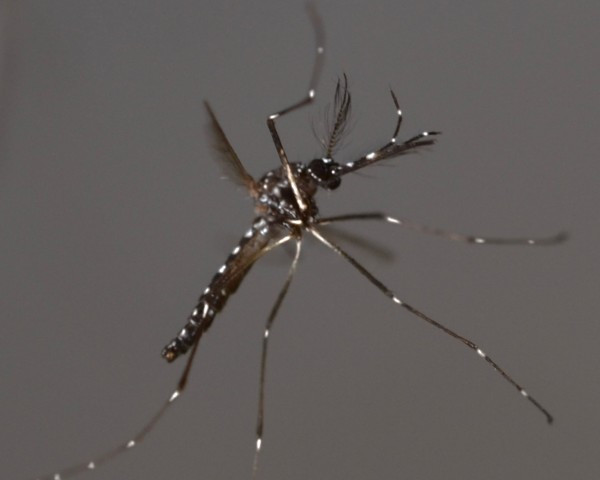Brazil: Millions of modified mosquitoes battle dengue in Piracicaba

Millions of genetically modified male mosquitoes let loose on the Brazilian city of Piracicaba seem to be winning the battle against dengue.
Since their release in early April, the GM mosquitoes have sired half the larvae spotted, showing that the experiment is proceeding on the planned eradication route.
Another trial in a suburb of Brazilian city Juazeiro, showed that within six months the GM mosquitoes had reduced the native population by 95%.
Use of insecticides has at best helped cut populations of the Aedes aegypti mosquitoes by 50%.
When the genetically modified insect mates with a disease-causing wild female, they pass on a gene causing larvae to die before adulthood.
The mutation they carry causes them to glow under UV light and be identified easily by scientists looking at the pots of water where the female lays the eggs.
By outnumbering the native males, the GM mosquito will bring down the numbers of dengue causing mosquitoes.
Created by Oxitec of Abingdon
Created in the UK by biotech company Oxitec of Abingdon and bred in a factory in Brazil, the six million mosquitoes were released into the area of the city which has seen most dengue cases.
"They've asked us to take on the neighbourhood that's the worst to prove it works," Hadyn Parry, chief executive of Oxitec, told the New Scientist. "We hope that if it does, we can expand to a larger number of areas."
The glow on the larvae is expected to be an instant readout of the success of the programme, called the "Friendly Aedes aegypti" Project.
The researchers will now have to see if the reduction of mosquitoes translates into reduced incidence of dengue.
"You can have lots of mosquitoes with only a few infected, or very few with all of them infected," said Margareth Capurro of the University of Sao Paulo, and head of the Brazilian team that conducted the Brazilian-funded trial on behalf of Oxitec in Juazeiro.
In the latter case, suppressing the population will not affect dengue transmission.
The other aspect is that wild mosquitoes from other areas can always move in.
Oxitec is now hoping to win FDA approval for trials in Florida but public approvals have not been as easy as in Brazil.
Unlike malaria caused by many kinds of mosquitoes, dengue and chikungunya are caused by specific types which can be more easily genetically modified.
Dengue fever is the world's fastest growing mosquito-borne disease. Over 50 million people suffer from this painful and sometimes fatal condition, and 40% of the world's population may be at risk.
© Copyright IBTimes 2025. All rights reserved.





















